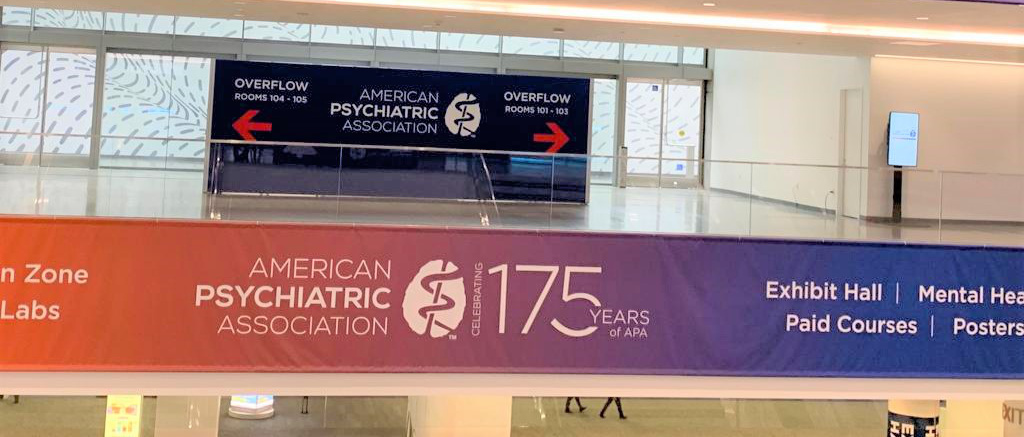
Choose a channel
Check out the different Progress in Mind content channels.

Progress in Mind

Disrupt, Include, Engage, Innovate was the motivational tagline to revitalise psychiatry at APA 2019. The need for such actions to improve productivity and functioning in the workplace for people with major depressive disorder (MDD) was highlighted at a lively interactive expert panel-led session and by the AtWoRC study results presented in a poster session.
Over 20% of physicians in training screen positive for MDD or depressive symptoms
A systematic review and meta-analysis of 54 studies involving 17,560 physicians in training demonstrated that between 20.9% and 43.2% screened positive for MDD or depressive symptoms during residency.1
Psychiatrists attending APA 2019 were invited to take part in a survey to find out how mental health is managed within their own healthcare system at a session led by a panel of experts.
The results revealed that although the many workplace environments – including those within the healthcare system – aim to improve the mental health of patients, they are unfortunately not sensitive or responsive to the mental health needs many employees, including healthcare professionals who serve patients.
A survey conducted within a healthcare setting noted a lack of openness in acknowledging mental health issues by staff and a lack of appropriate measures within the system to help employees with mental health problems.
The survey also revealed that the mental health of its employees appears to be worsening, apparently related to increasing administrative loads, in particular completion of electronic medical records. Clinicians who went into medicine to work with patients now have little actual patient contact time, and the expert panel suggested that this could be a cause of depression and stress.
It is clear that understanding and addressing mental health in the workplace should be a top priority, both within and outside of the healthcare sector.
Effective antidepressant treatments should aim to restore patients’ functioning at work
Effective antidepressant treatments should not only help get patients with MDD get back to work but should also aim to restore patients’ functioning while in the workplace. This was the conclusion of the AtWoRC study presented in a poster Professor Pratap Chokka, University of Alberta, Canada.
AtWoRC was a 52-week, open-label study to investigate the work productivity of patients with MDD who were receiving at least one dose of a multimodal antidepressant. The study enrolled 219 patients in gainful employment of at least 20 hours/week or in full-time post-secondary studies or vocational training with a score of at least 30 on the 20-item Perceived Deficits Questionnaire – Depression.
In addition to taking time off from work (absenteeism), patients with MDD are often not fully productive when at work (presenteeism)
Self-reported workplace functioning was measured using a variety of scales. Clinically significant improvements were observed across domains and items assessing different aspects of workplace functioning and productivity after 12 weeks of antidepressant treatment, with these improvements maintained to 52 weeks. Also, the results of the study indicated improvements in both mood symptoms and cognitive symptoms over the course of the study.
The most pronounced percentage point improvements from baseline to week 52 on the four-domain Work Limitations Questionnaire (WLQ) were for the workplace functioning domains of:
This highlights the mental, rather than physical, aspects of work productivity that needs to be addressed for patients with MDD to more fully return to functioning at work.
Significant improvements in absenteeism and presenteeism were also observed for participants in the AtWoRC study over the 52 weeks of antidepressant treatment; and the improvement in presenteeism was closely correlated to improvements in mood and cognitive symptoms, highlighting the impact of presenteeism in working patients with MDD.